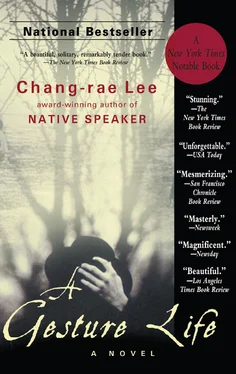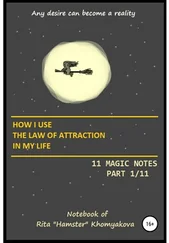I myself, up to that time, was hardly what one could call experienced, but unlike the corporal I found little of interest in the hand-sized tableaux. They held for me none of the theatrics and drama that he clearly savored in them. Instead, I was sure, they smacked of the excess and privilege of a sclerotic, purulent culture, the very forces that our nation’s people and will were struggling against, from Papua New Guinea and Indonesia to where we were posted at the time, in the foothill country of old Burma, approximately 125 kilometers from the outskirts of Rangoon. The women in the photocards were full-figured, not quite young, though several of them were attractive in an exotic manner, such as circus performers who do bizarre tricks to force one’s eye.
The one image I preferred was the one of the bath. It was a mostly unadorned scene. With no other props but the tub and a coat hook for the robe and towels, the staging was quite plain. A woman was receiving a bath as she stood exposed, the attendant to the side of her in the midst of sponging her long, pale back. Somehow, I always noticed the helper more than the featured bather. She was younger, and more delicately limbed, like a Japanese, though in truth it was her face that struck me. From her expression, one could think she was truly intent on washing the woman’s body, as if she weren’t concerned with the staging or the camera or the oddity of her own nakedness, but of her task alone.
Several times the corporal offered to give me that particular card, but I didn’t want the bother and worry of keeping it among my few personal things, should I be killed and those items along with my remains be tendered to my family in Japan, as was customary. In most all cases the officer in charge of such transferrals checked the package to include only the most necessary (and honorable) effects, but one heard of embarrassing instances when grieving elders were forced to contend with awkward last notions of their dead. I feared it would be especially shaming to mine, for as adoptive parents they might shoulder the burden of my vices even more heavily than if I had been born to them, blood of their blood, as there would be no excuse but their raising of me. Troubling to me was the image of my mother, peering at the photo of the bathers, and so inescapably remembering me, and then having desperately to hide it in her cosmetics chest before my father arrived home from his factory. Still, being twenty-three years old and a man and having been only with that Madam Itsuda during my first posting in Singapore, I was periodically given to the enticements of such base things, and unable to help but step into the radio tent whenever the corporal addressed me.
“Have I shown you this new series, sir?” he said one sweltering afternoon, reaching into the back inner flap of his code book. His eyes seemed especially bright, almost feral. “I traded some of mine to a fellow at munitions. He had these. He said he was tired of them, sir.”
There were several photographs, which he had pasted into a small journal book, the cardstock and image of much lower quality than the corporal’s Dutch assortment. But these were pictures of women and men together, from a close-in perspective, patently engaging in sexual intercourse. I had never seen such pictures before, or even imagined they could exist. The depicted acts were crudely staged, but seemed actual enough, and the style of the photography, if this could be said, was documentary, almost clinical, as though the overexposed frames were meant for some textbook of human coitus. To my mind, there was nothing remotely titillating in them, save perhaps the shocking idea that people had willingly performed the acts while someone else had photographed them.
The corporal, unfortunately, took more than a customary delight in the pictures. He seemed to be drawn into the stark realism of them, as if he desired to inhabit them somehow. I would notice him every so often around the camp, lingering about on his own, the private journal always in his clutch. In the week or two after he had first shown them to me, I encountered him several times, each instance finding him further disheveled in appearance, wholly unwashed (and reeking most awfully, even more than the camp norm), as well as being slightly jumpy and skittish, with a scattered gaze. His face had erupted in a sudden rash of pimples. He was, as mentioned, callow and youthful, as yet, at nineteen, without much developed musculature or hair on his lip. He was the youngest boy of a fairly prominent family, whose holdings in our town included a trucking firm and an automobile dealership. He had been trained in coded field communications to take advantage of his obvious intelligence, and to avoid the likely consequences of his physical immaturity if he were an infantry regular, which would be certain injury and possible death at the punitive hands of superiors, long before an enemy confronted him.
I took pity on him because of this, though I was afraid that lurking beneath his quick mind was a mental instability, a defect of character that I was certain would lead him to a troubling circumstance. As one of the brigade medical personnel, I decided to write a memorandum to Captain Ono, the physician-in-charge, advising that Corporal Endo be evaluated and possibly even relieved of his duties and disarmed; but as with much else in wartime, it was lost, or ignored. I should have understood the corporal’s strange behavior to be an alarm — for example, he had placed among the photographs of his elders in the small shrine next to his bed several of the newly traded pictures, and actually cut out certain lurid forms and applied them in a most dishonoring fashion beside the portraits of his stolid-faced grandparents. When I lingered over this personal shrine, the corporal assumed I was admiring his artistry and even offered to refurbish mine if I so desired.
This was in the early fall of 1944, when it seemed our forces were being routed across the entire region. Ever since Admiral Yamamoto’s transport plane had been ambushed and destroyed by American fighter planes some eighteen months before, the general mood and morale, if still hopeful, had certainly not been as ebullient and brash as it was in the high, early times of the war, when the Burma Road fell, and Mandalay. And now with our being under threat of attack from British and American dive-bombers — though none seemed to come for us, as if we’d been forgotten — the behaviors of the brigade, and most notably of Corporal Endo, grew increasingly more extreme. Sometimes, if one stood outside the communications tent, one could hear him talking to himself in a singsong voice, pretending — as he readily admitted to me — to be a film star like Marlene Dietrich or Claudette Colbert in the midst of a romantic seduction. Of course the corporal didn’t speak English, but he memorized well enough certain dramatic tones and utterances such that his gibberish seemed almost real. Others had heard him do this as well, and there was soon suspicion among some of the officers that the corporal was a homosexual, and one of the captains even asked me if in my opinion he was a threat to the other men, like a contagion that should be checked. I told him I did not think so, but that I would be watchful of his activities and make a full report.
I knew, of course, that the corporal was constituted like most men. And not because of his interest in pornography, which was all too typical and rampant around the base. His unusual conduct was, I believe, a simple by-product of the deepening atmosphere of malaise and fear. I myself had developed a minor skin condition on the lower calves, and I was treating many others for similar irritations such as boils and scalp rashes and an unusual variety of fungal infections. It seemed the whole encampment was afflicted. Corporal Endo had no such physical problems, save his acne, and so I began to consider the possibility that his expressions were of a besieged mind, one perhaps innately tenuous and fragile and now — under duress — grown sickly and ornate.
Читать дальше











![William Frith - John Leech, His Life and Work. Vol. 1 [of 2]](/books/747171/william-frith-john-leech-his-life-and-work-vol-thumb.webp)
![William Frith - John Leech, His Life and Work, Vol. 2 [of 2]](/books/748201/william-frith-john-leech-his-life-and-work-vol-thumb.webp)